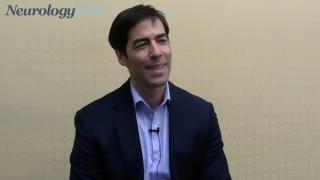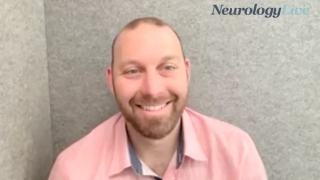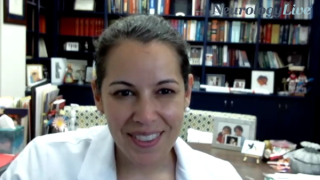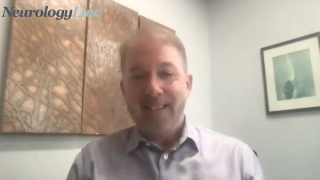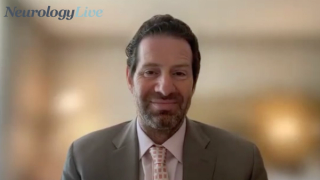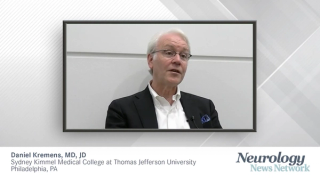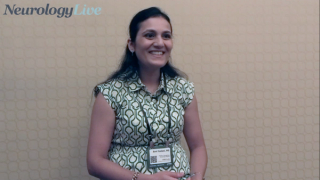
Movement Disorders
Latest News
Latest Videos

CME Content
More News

Panelists John England, MD, FAAN, and Lisa Merlin, MD, discuss the main objectives of the upcoming AUPN Annual Meeting, set to take place September 14th in Orlando, Florida.

Here's some of what is coming soon to NeurologyLive® this week.
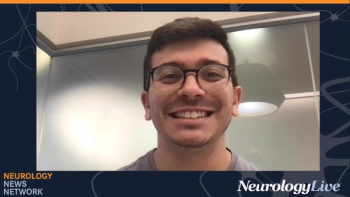
Neurology News Network. for the week ending July 27, 2024. [WATCH TIME: 4 minutes]

Test your neurology knowledge with NeurologyLive®'s weekly quiz series, featuring questions on a variety of clinical and historical neurology topics. This week's topic is on congenital muscular dystrophy.

The application was supported by positive data of KYV-101 in patients with stiff-person syndrome treated in Germany under a named-patient treatment option.

Take 5 minutes to catch up on NeurologyLive®'s highlights from the week ending July 26, 2024.

Michael Soileau, MD, FAAN, talked about a panel of specialists who discussed the evolution and multidisciplinary treatment of Parkinson disease, emphasizing patient-centered care and advanced therapeutic options.

Anvi Gadani, MD, assistant clinical professor of medicine at Medstar Georgetown University Hospital, discussed surgical and device-guided therapies for managing advanced Parkinson disease and essential tremor.

In a study with 147 participants, SAGE-324 did not show a statistically significant dose-response relationship or improvement compared to placebo in patients with essential tremor.

The director of movement disorders at the Banner Sun Health Research Institute talked about recent, promising advancements for diagnosing atypical Parkinsonian disorders and the questions that remain.

Steve Hoffmann, MS, and Alessio Travaglia, PhD, provide commentary on a recently launched public-private partnership aimed at identifying biomarkers to better differentiate Parkinson disease from other related neurodegenerative disorders.

Patricia Clark, CNP, a nurse practitioner at the Cleveland Clinic, talked about a specialized program for hospitalized patients with Parkinson disease that aligns hospital protocols with home medication regimens to improve care.

Here's some of what is coming soon to NeurologyLive® this week.

Test your neurology knowledge with NeurologyLive®'s weekly quiz series, featuring questions on a variety of clinical and historical neurology topics. This week's topic is on progressive multiple sclerosis.

Take 5 minutes to catch up on NeurologyLive®'s highlights from the week ending July 19, 2024.

The investigational therapy, which targets neurodegeneration, has shown promise in phase 2 and 3 studies of Alzheimer disease and Parkinson disease, with additional studies on the way.

LX2006 shows safety, tolerance, and significant improvements in cardiac biomarkers in FA cardiomyopathy, progressing to higher dose cohorts.
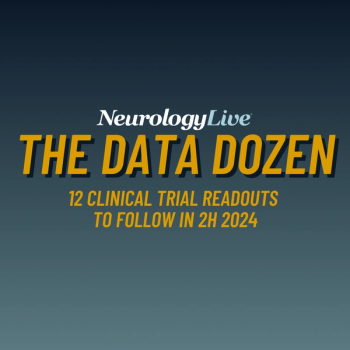
Take a look at some of the most-anticipated clinical trials with expected data readouts in the second half of 2024 that researchers and clinicians in neurology should keep an eye out on.

After 6 months of treatment, nearly half of the small-scale cohort demonstrated enhancements on the Unified MSA Rating Scale, an assessment of activities of daily living.

The neurologist and clerkship director at the University of Connecticut provided perspective on the developing role of clerkship directors and the value they provide to neurology departments.

The neurologist and director of movement disorder neurology at the Marcus Neuroscience Institute discussed how the Syn-One test utilizes alpha-synuclein and what this biomarker adds to the diagnosis of Parkinson disease. [WATCH TIME: 3 minutes]

Secondary symptoms of PD can be as debilitating as the primary motor symptoms, often leading to increased disability, reduced independence, and a higher burden on caregivers.

Here's some of what is coming soon to NeurologyLive® this week.
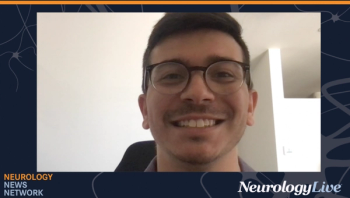
Neurology News Network. for the week ending July 20, 2024. [WATCH TIME: 4 minutes]
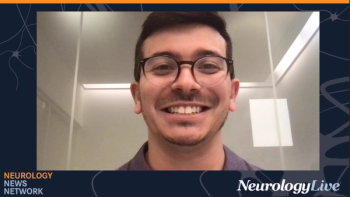
Neurology News Network. for the week ending July 13, 2024. [WATCH TIME: 4 minutes]



